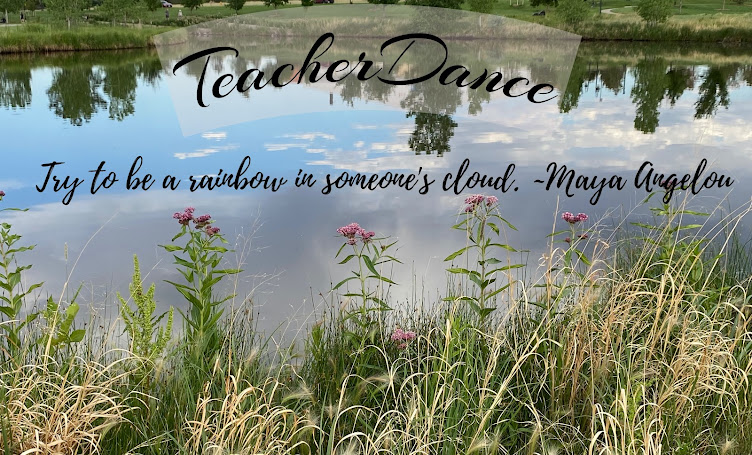 It's The Beginning of the fifth year of Ruth's and Stacey's The Two Writing Teachers March Slice of Life challenge, and my second year. It's my first anniversary! I am proud of myself, but also proud of all who chose to keep going and keep writing and keep thinking through this year in the group. I'm looking forward to more fun everyone. Thank you Stacey and Ruth for staging this challenge.
It's The Beginning of the fifth year of Ruth's and Stacey's The Two Writing Teachers March Slice of Life challenge, and my second year. It's my first anniversary! I am proud of myself, but also proud of all who chose to keep going and keep writing and keep thinking through this year in the group. I'm looking forward to more fun everyone. Thank you Stacey and Ruth for staging this challenge. When I was in the classroom, in writers workshop and in our unit work, I shared, gave some lessons in poetry, and conferred with those students who wanted to write poetry, but for about 10 specific weeks of the year, I met with a poetry group, those students in my class who wanted to devote more time to poetry, and to write in a supportive group who loved poetry.
The group varied from about 10 to 15 students and it was actually more fun with a smaller group, more time to share and talk about each others’ poems. The structural plan varied little. We met; we each shared a poem by someone else and told why we liked it. Students were to put the poem in their writers notebooks and record a little of why. By the end of the group, students had at least 10 poems they had found they loved, and sometimes were able to see a pattern of their favorites.
Once we began to meet, it was a pleasure to give a brief mini-lesson, usually with a poem I wanted to share, to share their ‘outside’ poems, and then spend most of the time reading the poems we had written. During that period, I modeled how to comment and give support to the authors and sometimes there was a pertinent point I could add about something or other about poetry. Perhaps it was about word placement for emphasis, or enjambment, some poetic device.
One part I loved was that I collected his or her newly written poems the morning of the group meeting and made a poetry packet for everyone for the meeting. It is powerful to see one’s words, to read them, and to have the audience be able not only to listen but also to see the poem. Usually I had the student read twice, and then we commented. Sometimes it was for a line we thought was wonderful, sometimes we were so touched, we sat silent for a minute, and sometimes, it was to suggest movement of a word, or a re-working of a sentence.
Every group member was there to write poetry, enjoy poetry, feel supported as we wrote, and to improve our writing. I did not have a specific agenda for the group but followed their lead in what they liked and where they seemed to be in their writing. Remember I had taught them about half of the year already, and some I had for more than one year. The group was led through choice and each improved by their engagement with many different poems by different authors, both those shared and classmate-written, and with their personal writing. I learned too, and sometimes used a student’s model to write my next poem. Others sometimes tried an idea I had shown.
If you are reading through this, I hope you are connecting my group description to the Two Writing Teachers’ Slice of Life Challenge that begins today. We choose to take the challenge, we write, we take ideas from others and try that kind of writing, we observe styles and, sometimes innately, incorporate them into our style. We support through comments, and at the end, we have experienced exceptionally wonderful examples of good writing from those who are passionate about it.
I loved my poetry groups and miss them very much. Blogging and being part of the Two Writing Teachers slicers and more recently the Poetry Friday group (who overlap some) have been substitute groups I value. More importantly, I hope that you as teachers see the parts of a writing group that are so important in any classroom. One writes, shares, receives support from and gives support to others, and works hard to get better. That’s it. It doesn’t take a written curriculum to do that. It’s all about choice.



































